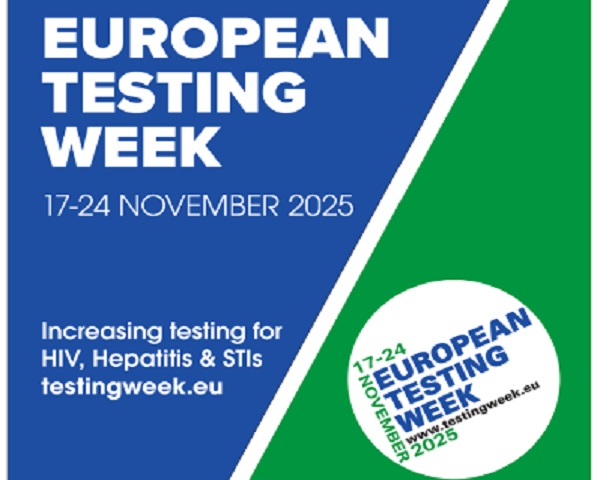
Luxembourg's Ministry of Health has announced that the Grand Duchy is once again taking part in European Testing Week, an initiative aimed at encouraging people to get tested as early as possible for HIV and other sexually transmitted infections (STIs).
This year's European Testing Week will take place from Monday 17 to Monday 24 November 2025.
According to the European Centre for Disease Prevention and Control (ECDC), several STIs continue to rise, particularly gonorrhoea and syphilis. In Luxembourg, national data confirm these trends, with a 14% increase in gonorrhoea cases and a 35% increase in syphilis cases in 2024 compared to 2023, affecting mostly men (78% for gonorrhoea and 77% for syphilis) aged 20 to 39. Chlamydia infections remained generally stable but increased among young women aged 20 to 24. New HIV infections, meanwhile, decreased by 29% in 2024. These figures highlight the importance of testing to detect infections, prevent transmission, initiate treatment early and protect everyone’s health.
This year, the HIV Berodung service of the Luxembourg Red Cross, the Family Planning Centre and the Ministry of Health and Social Security are joining forces to raise public awareness and promote early testing for STIs and HIV. The Ketterthill, Bionext and Laboratoires Réunis laboratories are supporting the initiative by offering free and anonymous testing.
The National Youth Information Agency (ANIJ) will also take part in European Testing Week through several awareness-raising actions as part of its “STI Squad: Reboost” campaign. The “Jugendinfo on tour” operation will run until Wednesday 19 November 2025 across Luxembourg City, offering an opportunity to meet young people, distribute condoms and raise awareness about the importance of getting tested.
“Testing is an act of care and responsibility towards oneself, one’s partners and one’s loved ones. It is the most effective way to detect an infection that may remain asymptomatic for years while causing irreversible damage to the body,” stressed Luxembourg’s Minister of Health and Social Security, Martine Deprez.
Prevention recommendations include using condoms, getting tested regularly, informing partners in case of an infection, keeping vaccinations up to date for hepatitis B and HPV, following treatment when prescribed and seeking information about HIV preventive treatments where appropriate.
Information on screening locations and procedures is available on santesecu.lu.
EO








